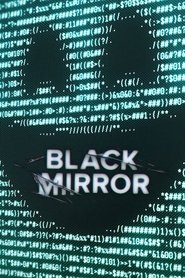

Manifest Watch Free Best TV Series Online on FilmyZilla
Creator
Creator
Cast
Michaela Stone
Ben Stone
Jared Vasquez
Olive Stone
Saanvi Bahl
Zeke Landon
Angelina Meyer
Robert Vance
Cal Stone
Video trailer
Synopsis
Synopsis
“Manifest” The Manifest series is an American supernatural drama produced by Jeff Rake. The show focuses on the crew and passengers of Montego Air Flight 828, which mysteriously disappears during an ordinary flight, only to appear five and a half years later and no trace of time for passengers. The world has changed, family members have grieved, while relationships have been reshaped, and new and fresh realities have sprung up. As the returning “828ers” try to integrate into the world, they often experience supernatural experiences known as “callings” visions, nudges, or premonitions that direct them to help others or uncover deeper mysteries. The series combines elements of drama, mystery, science fiction, as well as emotional character development, as it investigates the nature of destiny, redemption, trust, and the unknowable.

Quick Show Info
Here is a brief collection of details concerning The Manifest:
| Attribute | Detail |
|---|---|
| Title | Manifest |
| Creator | Jeff Rake |
| Original Network | NBC (seasons-3) |
| The Streaming Home (Final Season) | Netflix |
| First Air Date | September 24, 2018. |
| Final Date for Airing | June 2, 2023 (conclusion of Season 4) |
| The number of seasons | 4 |
| The number of episodes | 62 |
| Average Episode Length | 42 minutes |
| Genre(s) | Theatrical, Mystery, Sci-Fi / Supernatural |
| Ratings Reception | Mixed-to-positive. The first season has 56 percent on Rotten Tomatoes; the fourth season has 86%. |
Plot Summary
Below is a general overview of the main series’ major arcs. Warning: Spoiler alert. The following summary will cover key developments, particularly towards the end of the season.
Early Mystery (Seasons 1 & 2)
Manifest starts with Montego Air Flight 828 taking off from Jamaica heading to New York. The flight’s passengers encounter unusual turbulence; however, the plane can land safely. The outside world has aged five and a half years. Those who were believed to be dead have passed on. The main characters include:
- Ben Stone (Josh Dallas) is a math professor whose wife, Grace, and daughter, Olive, and son, Cal, have to adapt to his absence.
- Michaela “Mick” Stone (Melissa Roxburgh) is Ben’s younger sister and an NYPD detective. Her relationship with her ex-fiancé, Jared, is strained following her return.
- Grace Stone (Athena Karkanis) faces the loss of her husband and rebuilding a life without Ben, and then confronts the shock of his sudden return.
- Other passengers and characters (like Saanvi Bahl, Zeke, Cal, Olive, etc.) appear as the mystical “callings” start.
When they return, a lot of passengers begin to hear or experience “callings” that are cryptic voices, visions, or compulsions which prompt them to take part in certain events (often emergencies) or provide more clues regarding missing passengers. The idea is that the 828ers might have a higher goal or purpose.
Season 2 raises the stakes: there’s growing attention on a government agency known as the 828 Registry. 828 Registry (tasked with keeping track of return of passengers), as well as the disappearance of “dangerous” 828ers, disputes over secrecy, and the ever-growing psychological burden of pursuing the instructions. The story is also awash with conspiracy theories, faith, and the conflict between fate and free will.
Escalation and Revelations (Season 3).
Season 3 continues to reveal the mythology behind the show. It introduces the notion of a “Death Date” — the date that prophesies the passengers who return are likely to die. Then, there are factions between those who believe in predestination and those who favor agency, as well as the Registry’s more thorny lines of separation, which intensify examination. Personal relationships deteriorate when pressure mounts; the most prominent characters are subject to betrayal, sacrifice, and a shift in allegiances.
At the conclusion of season 3, a dramatic finale leaves a myriad of mysteries unsolved, including the motives and identity of “Angelina,” the role of the dragon/sapphire symbolism that is tied to Cal, and the extent to which cosmic powers are involved.
In the end, the show was canceled by NBC, which left the fans with no closure.
Revival and the Final Season (Season 4)
But, because of the high streaming numbers and public outrage (#SaveManifest campaign), Netflix revived the Manifest to air a final 20-episode season that is split into two sections. In the final episode, a lot of the plotlines conclude.
In Season 4, the stakes increase, with eruptions of volcanic fissures, growing 828er hatred (among the population at large), and the impending approaching Death Date press the characters to perform. The final seasons unfold the series builds towards an epic, cosmic finale that sees the passengers come back to the year 2013 with their memories preserved, effectively resetting the timeline, but leaving behind the memories of their past.
This is why the Manifest concludes on a note of redemption and rebirth, and passengers are allowed to experience events (albeit in a different way) without the rigidity of the prior timeline.
Themes and Analysis
The Manifest mixes speculative fiction and emotional and often spiritual foundations. Here are a few themes that are recurring and interpretational perspectives:
The Fate of the Universe, Freedom Will, and Predestination
One of the main conflicts is between destiny and the characters’ choices. The idea of “callings” implies the existence of a planned path or goal for the 828ers. However, the characters’ reluctance to embrace these ideas raises a more fundamental issue: how much control can we exercise over our lives? A Death Date concept emphasizes a set date for completion. The show often contrasts faith in the callings and the desire to create your own path.
Faith, Religion, and Spirituality
The show heavily draws on religious imagery and metaphors. Biblical references like light, judgment, resurrection, and sacrifice are plentiful. A lot of characters consider these “callings” to be divine guidance. But the show also examines doubt, doubt as well as the burden of believing. Some viewers have voiced their displeasure at the show’s overt Christian influences, while others have praised the show’s ability to explore spiritual questions.
Loss, Identity, and Trauma
For passengers and their loved ones, the gap of five years isn’t only a matter of time but also emotional. Families are broken, and grief has created lifestyles, and identities are being questioned. There is a tension in “before” as well as “after” runs through the entire show. Many characters are confronted with trauma, including guilt of the survivor and guilt about the decision to move on, conflicts of loyalties, as well as the burden of what they lost or changed.
Love, Family, and Redemption
The heart of the story, The Manifest, is a drama about family. The Stone family (Ben, Michaela, Grace, Cal, Olive) is the main focus, and a lot of conflict stems from the need to balance familial bonds with the cosmic stakes. The arcs of redemption are prevalent in the story: characters are seeking forgiveness, reconciliation, and healing. Love is tested by distance, time, and change as well as metaphysical forces that are at work.
Unanswered Questions and Mysteries
Mystery is a part of the structure of the series. The show slowly uncovers mysteries (e.g., the origins of the dragon/sapphire, the roots of the callings, or the truth about Angelina). But critics say that the show’s threads are unclear or unexplored. Some see this as an advantage (opens the possibility of interpretation); however, others view it as overreaching in the narrative.
Controversy and Criticism
While the band Manifest has a loyal fan base, it is not immune to criticism. The most prominent points of contention and criticism are:
Pacing as well as Logic and Plot Holes
The most frequent complaint is that, during the latter seasons, the pace becomes uneven and the explanations for supernatural events become more complicated. A few viewers point to unsolved story threads and retcons as well as leaps in logic. The second half of last season was particularly controversial for those who felt that they had “nosedived” in its coherence.
The use of Cliffhangers in conjunction with emotional Manipulation
The show heavily relies on emotional beats, cliffhangers, and dramatic reveals after each episode. Some critics regard it as formulaic or slick. Some say that character development is not as important as plot twists.
Religious Overtones and Theological Ambiguity
The themes of spirituality and religion can be perceived as overt or unbalanced. A few viewers think that Christian metaphors are used prominently, while others feel that the show doesn’t completely embrace its implications. This tension, which is balancing theological ambiguity with a sense of mystery, can leave viewers in a murky place that frustrates viewers who want to know more.
Cancellation & Revival Compromises
When NBC pulled the show off the air after three seasons, a lot of fans were unhappy with the absence of closure. Its revival at Netflix resulted in changes to the structure, pacing, and direction. Some feel that the original’s strengths are diminished. Some critics were concerned that the final season was rushed in its resolution to tie up the loose ends.
Polarizing Reception
Although many of the fans remain loyal, others are critical. One Reddit user summarized the situation:
“The boring writing was difficult to watch … and the Christian themes were like a sledgehammer, and the whole thing bored me to tears.”
Another confession:
“Terrible acting, horrible casting … therefore, why don’t I just look away?”
These strong reactions illustrate the way Manifest frequently divides its viewers into “love the show or loathe it” camps.
Cinematography and Style
Although the Manifest is more character-driven and narrative-driven rather than experimental in its visuals, it maintains the same style and aesthetic that is consistent with its concepts.
- Lighting and Palette: Many scenes utilize dark, subdued lighting, particularly in scenes of visions and calls. The palette tends to be cool grays, cool blues, and earthy tones with a muted tone that emphasizes the emotional weight and ambiguity of the real.
- Visual Motifs with Symbols: The show repeatedly uses images of water, light storms, or fractures, as well as mirrors, to invoke spiritual or transformative moments. The use of volcanic fissures during the final season is a prime example of the show’s ability to combine cosmic stakes and natural disaster imagery.
- Editing and Transitions Shortcuts are often used to accompany calls or visions. The narrative usually employs flashbacks and cross-cutting in order to create a contrast between “before” and “after,” gradually revealing connections.
- Camera work: The show alternates between more focused, grounded handheld, or character-focused shots in intimate moments and also broad, sweeping angles when depicting large-scale or supernatural occasions.
- Sound and Score: The score’s musical elements lean towards ethereal, ambient compositions to increase the tension and emotions during dreams. Sound design, often blurring the lines between external and internal whispers, voices, and echoes, accentuates the cries and gives them a tense and enveloping quality.
Overall, although Manifest isn’t able to break any new ground, its visual Cinematography can aid in its blend of emotional storytelling and speculative drama.
Cultural Impact
Despite its flaws, the Manifest has left its mark on popular culture as well as the industry of television in a variety of ways:
Streaming Revival and Fan Power
The most talked-about legacy of the Manifest is the way that fan-generated enthusiasm helped in its revival. After NBC pulled the show from its schedule after a successful public-facing campaign (#SaveManifest) together with an impressive stream viewership, it convinced Netflix to take it on for a single season. It is frequently cited as a case study of how streaming platforms and fan action can alter the destiny of a show.
Binge-Watching and Mysterious Genre Trends
The Manifest took on the trend of serialized mysteries, which makes it popular to watch in a frenzied manner. The structure of cliffhangers, as well as layered mythology and mid-season episodes, reveals trends we see in shows such as Lost, Fringe, and Westworld. The show’s success proves that there’s still a demand for stories that are serialized and speculative in mainstream TV.
Conversation around Fiction and Faith
In combining celestial mystery with humanity’s drama, The Manifest pushed discussions about destiny, faith, and morality into popular entertainment. Even critics question the ways in which theological topics are presented within popular entertainment.
Polarizing Fandom and Critical Dialogue
The distinct divide in viewers’ opinions (some love it, while some disapprove) illustrates how contemporary TV narratives spark broader arguments about the coherence of narrative goals, the reason for their existence, and viewers’ expectations. The Manifest is frequently used by critics and viewers of television to rebut arguments over “plot against. The character “mystery show that provides an experience vs. those that don’t” and the extent to which it is okay to be ambiguous in storytelling.
Potential for Legacy and Spinoff
The creator of the show, Jeff Rake, has expressed an interest in a spinoff or continuation from the Manifest universe. While nothing is confirmed, the constant fan-driven interest in the show and “828 Day” celebrations (August 28) confirm that the show has its cultural relevance.
Where to Watch
If you’d like to see Manifest, then here’s the best place to locate it:
- Netflix. In many areas, particularly in the U.S., all four seasons (including the final season produced by Netflix) are available to stream.
- NBC (or Network Broadcast (Legacy) Seasons 1 – 3 originally broadcast on NBC.
- Licensing exceptions. In certain regions, Season 3 is held by an alternative streaming or broadcasting service (for instance, in the U.K., it’s said to be owned by Sky instead of Netflix) because of rights agreements.
- DVD/Digital Purchase The series is available to purchase through the internet (e.g., iTunes, Amazon Video) and also on DVD/Blu-ray, depending on the region.
Since licensing agreements differ by location and the time of year, it’s best to verify the local catalog of streaming and service (Netflix, Amazon, local TV networks).
Guts?
If, by “Guts?” you’re asking for the “essence” or “heart” of manifesting -what is its emotional or thematic strength? Here’s my perspective:
What does manifest it “guts its ability to explore big issues of the present by examining the lives of everyday people living in extreme circumstances. The characters aren’t superheroes. They are fragile, hopeful, grieving human individuals who must balance personal stakes (family relationships, loss) with the larger issues (destiny change, destiny, sacrifice). The show’s emotional underpinnings are the Stone family relationships, the tension of betrayal and reconnection, the guilt of knowing that you could be fated to be killed or serve — this is the foundation for the more speculative aspects. The goal of the show is to balance the intimate and epic. If it does so, it will ask: If you had a second chance, would you listen to an instruction from a source telling you that to do it?
Frequently Asked Questions
Q: Are the characters in the Manifest based on a real tale?
A: No. The Manifest is a fictitious series. While it explores the concept of mystery planes that have disappeared (e.g., MH370 or urban legends such as Pan Am 914), it’s not based on any particular real or actual event.
Q: What was the reason for the Manifest being canceled and then re-launched?
A: NBC canceled the show after three seasons, despite the planned six-season arc. Following its move to Netflix, Manifest became a hugely popular streaming show and a strong fan base (#SaveManifest). Netflix took note of this and ordered an entire final season of 20 episodes to complete the story.
Q What’s”Death Date” “Death Day”?
A”The death Date is a date prophesied that many returning passengers believed that they would die. This was a key problem that caused tension in the later seasons.
Q Why do characters receive “callings”?
A: Callings are mystical visions, compulsive-type urges, or premonitions that direct 828ers to do what they want to do (often to avoid harm or provide clues). They’re meant to indicate the characters’ involvement in an underlying purpose or cosmic strategy. The precise origins or meaning of these calls is an aspect of the story that unfolds as it progresses.
Conclusion
The Manifest is ambitious, maybe overly ambitious at times, but it’s still a captivating adventure through mystery, faith, and human hearts. The show’s strongest points are its emotional stakes, namely the grief of being absent, the desire for reconciliation, and the conflict between fate and the possibility of a choice. The show isn’t perfect, with several shaky pacing errors, and narrative threads can wiggle due to the weight of mythology, and a few explanations do not meet expectations. However, for a lot of viewers, these flaws do not outweigh the show’s ability to entice, enthrall, and provoke thought.
In the final analysis, Manifest offers more than just a sci-fi adventure and asks if humans can be willing to get influenced by forces outside of our control, yet remain a source of love and significance. If you are willing to let go of the illusion of belief and surrender to its speculative nature, it’s a worthwhile journey.
Original title Manifest
TMDb Rating 7.646 1,681 votes
First air date Sep. 24, 2018
Last air date Jun. 02, 2023
Seasons 4
Episodes 62
Average Duration 42 minutes































